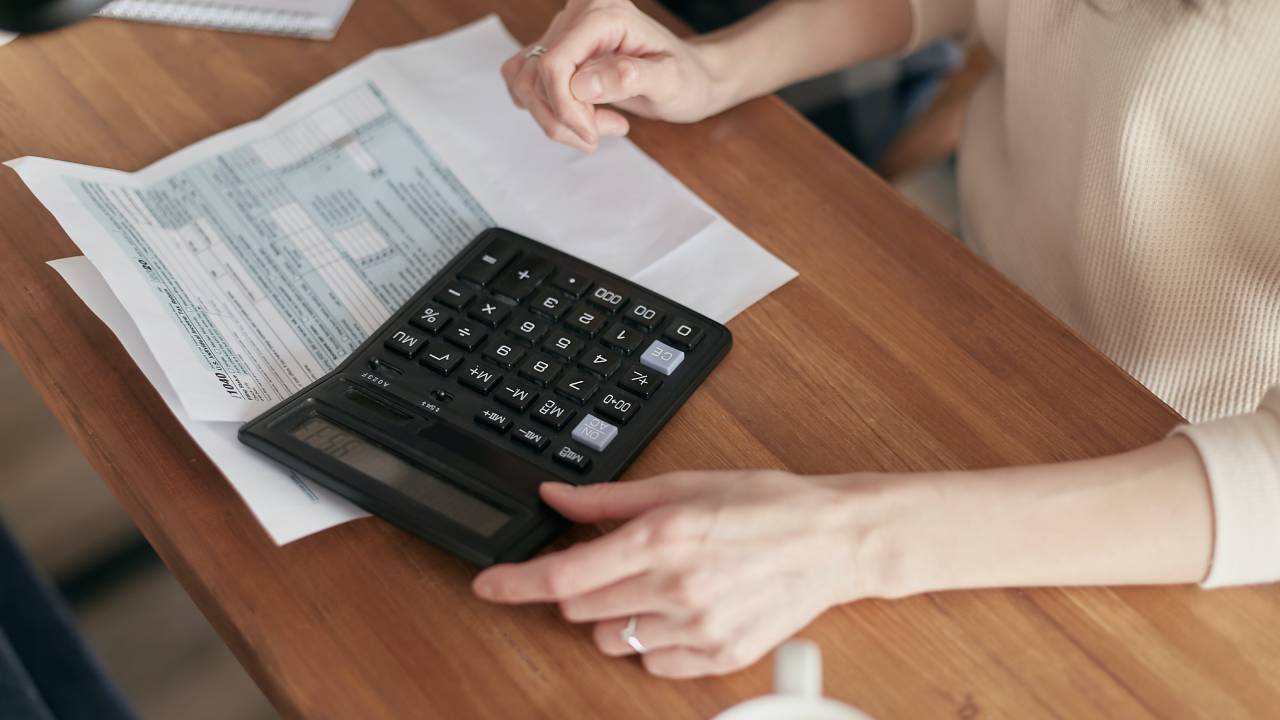My 5 biggest tips for saving money during the cost of living crisis
The best 5 ways to save, budget and beat the cost of living crisis


It goes without saying that the cost of living crisis has massively affected the way we spend money. With many everyday and essential prices having risen significantly, it’s getting harder and harder to keep our living costs down and to justify certain purchases.
All of us have been impacted by the cost of living crisis, myself included. As Deals Writer and Shopping Expert at T3, I’ve been looking for ways to save money to help our readers avoid the price hikes, from streaming services to energy bills, phone contracts to summer air conditioners.
While I definitely think all of the hacks I’ve found so far can massively reduce your outgoings, I still feel there needs to be more concentration on managing money and saving cash on our household spending. The rising energy bills, high fuel prices and expensive food shops aren’t getting any easier so to help you save extra money on your monthly spending, here are my 5 biggest tips to save, budget and survive the cost of living price hikes.
1. Check your contracts
My first tip is to check your phone, broadband and energy contracts. If your monthly outgoings have gone up substantially, it’s important to check how long your contract is, what you’re paying for and then evaluate whether you think you’re getting your money’s worth from this plan or provider. If you do this and think you could get a better or cheaper deal elsewhere, it might be worth looking into other options and making the switch to keep your costs down.
Phone bills are a massive component of this, with many reports stating that millions of people are out of contract on their phones and spending way more than they should each month. By double checking your phone contract length, you can save hundreds of pounds each month and even halve your bills. Switching to SIM only is also a handy way to save money on your phone bill, and we’ve got a comprehensive guide to the best SIM only deals every month so you can find the lowest prices. The same can be said for broadband and by comparing broadband deals, you can ensure you’re getting the best package and prices.
2. Cancel services you don’t use
The next tip is to cancel services and recurring purchases that you don’t use or can’t afford anymore. This is quite brutal, as these outgoings are typically things you enjoy, like streaming services, music apps and gym memberships. However, with the prices going up, it can be hard to justify spending over £10 a month on streaming apps, especially if you’re not using them to their full potential.
As most of these purchases are direct debits, it’s easy to forget that the money is even leaving your account so make time to sit down and go through them all. You’re going to have to be ruthless here, for example, if you only watched one movie on Netflix in the past month, it might be time to click the cancel button.
Alternatively, if you don’t want to get rid of these subscriptions, use a few of the tricks in my how to save money on streaming services guide or make the most of the best free streaming services. The great thing about streaming services, music apps and gym memberships is that you can cancel and sign up again at any time, so this is an option for the future.

3. Buy cheaper options during your food shop
The cost of living crisis has seen food and drink essentials like bread, milk and oil going up in price significantly. The weekly food shop has become more expensive than ever before, but I’ve found a few hacks that can minimise your spending while still being able to feed yourself and your family.
Start by switching supermarkets. If your local branch is pricier than other stores, it’s worth switching to a different shop to save extra money. In the UK, Waitrose and Morrisons are the more expensive supermarkets and Aldi and Lidl are the cheapest options, so consider which shop will get you more for your money. Another quick switch is choosing supermarket own-brands. Most supermarkets offer their own versions of popular branded products which can save you hundreds of pounds a year. For example, instead of buying Kellogg's Corn Flakes (typically priced at £2), choose the Lidl own-brand Corn Flakes for just 55p.
Finally, check the price reduction sections. To reduce food waste, supermarkets reduce the price of products that are near their use-by or best-before dates. This can massively reduce your food shop by several pounds so when you're next at the supermarket, keep an eye out for the yellow price reduction stickers.
4. Cut down on your energy, electricity & water usage
Tip number 4 is to try and cut down your energy, electricity and water consumption. I’ve already covered how to save money on your energy, water and electricity bills in more detail but I wanted to include it here as well, as these bills are typically the most expensive outgoings every month.
To save electricity and energy, be vigilant with turning things off. It’s easy to accidentally leave a light on or to keep your TV on standby but this is a massive energy drainer and can cost you more month on month. Make it a habit to do a ‘plug check’ every time you leave the house and you’ll definitely notice a change. It’s also a good idea to switch your light bulbs to LEDs to save more energy and reduce your lighting bills.
Water bills can also rack up so try to have quicker showers and avoid leaving your tap running to reduce water usage. Washing clothes is the main culprit when it comes to wasting water, so check if your washing machine has an eco or energy-efficient wash option and try using cold water instead of hot for your clothes wash. During the summer, it’s also a good idea to avoid using your tumble dryer by hanging your clothes out to dry, especially when the weather is nice.

5. Drive smoother to save on petrol
Petrol prices are at a record high, making it harder for people to drive to work, drop their kids off at school and run errands. However, there are a few ways you can save on the cost of petrol and strangely enough, improving your driving skills can help you avoid filling up sooner.
To avoid paying too much for petrol, get petrol at supermarkets rather than petrol stations. Supermarkets typically have cheaper fuel prices and can help you save extra pounds on filling up your car. Now that you’ve filled up your car, try to use as little petrol as possible with these driving tricks. Try to ease off the accelerator, change gears earlier and keep to the speed limit. By avoiding revving too much, speeding and turning or braking harshly, you can lower your cars’ fuel and energy consumption. Another way to keep your cars’ cost down is to not leave it running. This is a huge waste of money and petrol so always turn your car off, even if you’re just quickly running back into the house for something.
Finally and most importantly, consider whether you actually need to drive or not. If you can walk or if it’s cheaper to get public transport, choose these options over driving to save extra money, especially if you’re a bit strapped for cash this month.
Bonus: Use discount codes
My bonus tip for saving money during the cost of living crisis is to use discount codes. Regardless of what I’m buying or where I’m buying from, I always check if the site has any discount codes available to use. This means I don’t have to pay full price and I can save money on my purchases.
Check out T3 discount codes for ways to save on tech and lifestyle purchases. If you’re looking for discount codes on even more products, from fashion to homeware and pretty much everything else, our sister site My Voucher Codes also has money off for the UK’s biggest retailers.
Get all the latest news, reviews, deals and buying guides on gorgeous tech, home and active products from the T3 experts

Beth is Home Editor for T3, looking after style, living and wellness. From the comfiest mattresses to strange things you can cook in an air fryer, Beth covers sleep, smart home, coffee machines, watches, grooming tools, fragrances, gardening and more.
In her spare time, Beth enjoys running, reading, baking and attempting craft projects that will probably end in disaster!